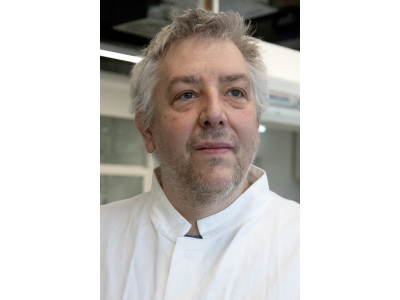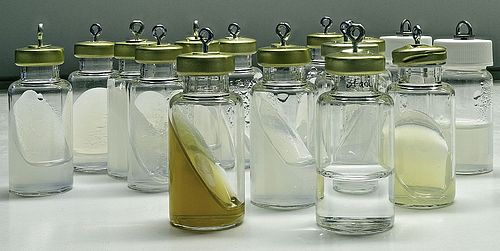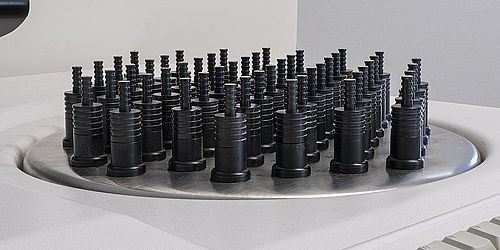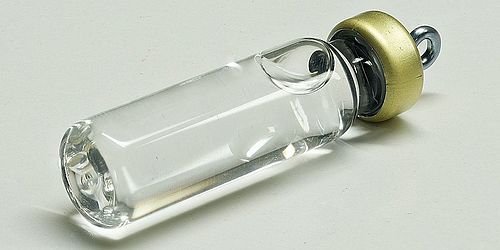Biological Calorimetry Lab
Living organisms are producing heat. And measuring the changes of temperature for diagnostic purposes is one of the oldest practices in medicine. Yet despite the dignified age of this method it has become extremely fertile in contemporary biomedical engineering. Calorimetry, as it is called here, certainly does more than a clinical thermometer, which only gives a rough impression of the temperature of, say, the ampit or the mouth.
Instead, with our calorimeters we can measure very small heat release resulting in tiny local temperature increase. These data provide detailed insight into the metabolic processes going on inside organisms. Bacteria and human cells studied at our lab have their characteristic heat release footprints expressed on the picowatt level. More important still is the fact that our measurements are time resolved, meaning that we know exactly when a metabolic event starts, how it develops and when it ends. Combined with other techniques such as laser spectroscopy or biochemical tests, this provides insight into actual molecular processes and their interactions in real time – an ingenious means to test drugs or new materials like implant coatings. Antimicrobial properties for example are easily tested using this approach. This method is able to detect the earliest stages of an infection far earlier than any other method. With calorimetry we recently have been able to prove that there are no antibiotic resistant bacteria in swiss cheese starter cultures and that therefore swiss cheese can be sold on the european market. And these are only the first lines of a very long list of possible other applications of calorimetry. So you see: The history of taking temperature might be long, but nevertheless it has just begun.
Research at BCL is especially concerned with:
- Rapid detection of contaminations and infections. The goal of this research area is to allow rapid determination of contamination of various medical and non-medical products such as blood products, fermented milk products or water for example to increase patient and consumer safety.
- Rapid drug susceptibility testing: here we want to enhance evidence based patient specific treatment by providing rapid antibiogram to medical practitioners and thus allow faster action and recovery for patients.
- Coatings of implants: as implant related infections are still a major issue in biomedical science we aim to provide evidence based data on antimicrobial efficacy of porous, opaque material with complex 3D shapes. In addition we plan to extend the application of the methodology to commercial product as e.g. cell phone and tablet glasses.
- Finally over longer term the aim of our lab is to work with industrial partners on miniaturization of calorimeters allowing the development of »adaptable calorimetry«, and possibly its combination with other non invasive and label-free technologies such as laser spectroscopy.
The Biological Calorimetry Lab was originally founded in 2003 by Dan Daniels and Dieter Wirz with an emphasis on biomaterial testing. As we have extended the scope of our research to infectious disease and bioactive materials, we are cooperating with research groups focusing on urology (Alta-Uro Basel), dentistry (UZH, Basel), tissue engineering (USB, Basel) or parasitology (Swiss-TPH, Basel) within the University of Basel and the University Hospital Basel. We do also collaborate with several industrial partners like F. Hoffmann-LaRoche, Colgate-Palmolive, and with international partners in USA, Mexico, and Italy.
As a recognition of the work performed in Basel, the members of ISBC (International Society for Biological Calorimetry) have elected Olivier Braissant as Chairman and gave him the task to organize the successful 2016 XIX ISBC (International Society for Biological Calorimetry) congress in Basel. In addition our lab organized the first ISBC associated summer school on biological calorimetry.
These are our current research foci:

Dr Olivier Braissant
Head of Biological Calorimetry Lab
Gewerbestrasse 14
4123 Allschwil
Switzerland



